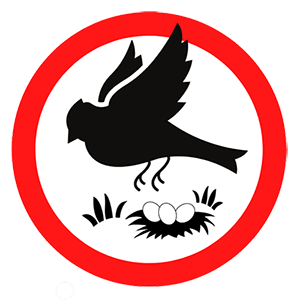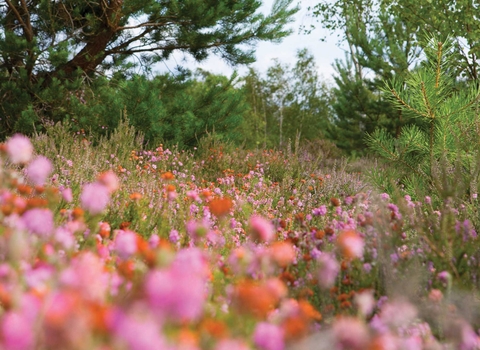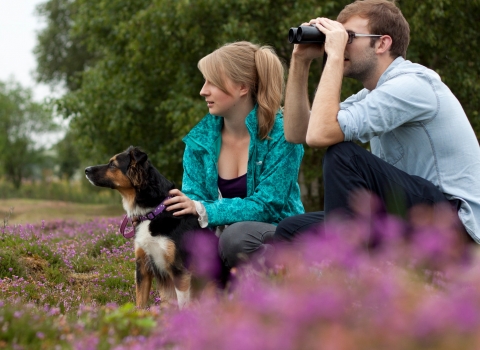The celebrated song of the skylark and bubbling call of curlew are evocative and welcome sounds of spring, as people explore our wonderful countryside and urban commons again.
Birds like these – whose numbers are in worrying decline – are making their fragile nests on the ground, tucked away safely in long grass.
However, too often, an exuberant or inquisitive pooch, wandering or bounding through grass or heather, easily disturbs wildlife and scares adult birds off nests or tramples eggs. And vulnerable chicks can quickly perish if they are left alone for too long.
The Wildlife Trusts are calling on dog walkers to keep their dogs on short leads to help ground-nesting birds this spring and summer. Whether you’re visiting heathland, fields or urban parks, there are birds nesting on the ground – or just above it – that can be hard to see and are at risk of trampling, disturbance, and harm.
James Herd, Director of Reserves Management at Surrey Wildlife Trust said:
“Dogs off leads can be a real issue for nesting birds on our heathland reserves. When dogs do leave the path and wander through the heather they can, unwittingly, disturb breeding birds as they go. Keeping dogs on leads will also benefit other wildlife that can be harmed or disturbed by enthusiastic pooches, including our native reptiles."
James Brittain-McVey, lead guitarist of The Vamps, dog owner and ambassador for The Wildlife Trusts says:
“I’ve learnt, as a rescue dog owner, the importance of keeping your dog under control at all times. And at this time of year, it’s especially important to remember that we can all play our part in helping birds breed successfully by keeping dogs on short leads in wild places – especially when so many species are having such a hard time.”
James Byrne, landscapes recovery programme manager for The Wildlife Trusts, says:
“Allowing dogs to run wild in nature reserves can be devastating for wildlife, particularly in spring when species are breeding and vulnerable. We’re asking dog walkers to be sensitive by keeping their animals on short leads, sticking to paths, and properly disposing of dog poo. Wildlife is already under enormous pressure – let's all keep dogs in check so as not to make things worse.”



